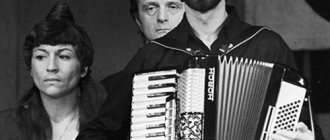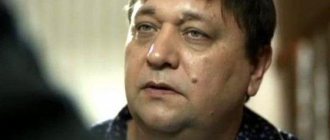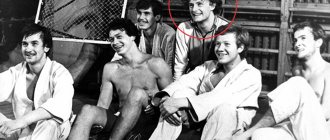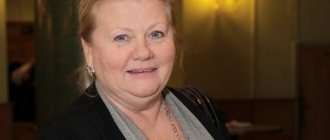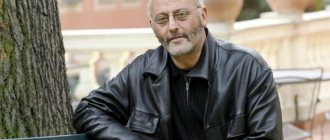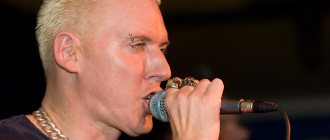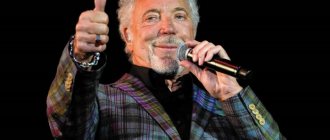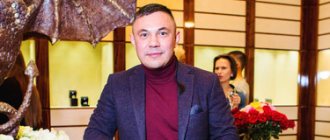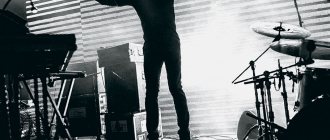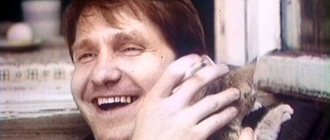Velimir Khlebnikov: biography
Star of futurism and Russian avant-gardeism, the brightest reformer of poetic language, a bold experimenter in word creation, one of the few compatriot poets who used morphological abstruse in his writing, “chairman of the globe.”
Poet Velimir Khlebnikov
Video course “Spring”
Landscaping for busy people, a beautiful garden without the hassle
A training course for those who want to make their dacha beautiful and prefer to spend their time, effort and money wisely.
Special offer! 50% discount! Make good use of your self-isolation!
₽ 1200.00 ₽ 600.00
MORE ❯❯❯
And this is all about him, Velimir Khlebnikov, who stands apart even among such extraordinary, talented poets as Anna Akhmatova, Alexander Blok, Nikolai Gumilev and Osip Mandelstam.
The greatest linguist of the twentieth century, Russian-American literary critic Roman Yakobson called Khlebnikov “the greatest world poet of the present century.”
Childhood and youth
The future poet was born in the late autumn of 1885 in the Kalmyk village of Malye Derbety, at that time the administrative center of the Maloderbetovsky ulus of the Astrakhan province. Viktor Vladimirovich Khlebnikov himself called the place where he spent his childhood “the camp of the Mongolian nomads professing Buddha” and said that he was born “in the steppe - the dry bottom of the disappearing Caspian Sea.”
Velimir Khlebnikov with his family
Parents are educated people with a rich pedigree, impoverished aristocrats. Father is a prominent botanist and ornithologist, the founder of the first state reserve at the mouth of the Volga. Velimir Khlebnikov's grandfather was an honorary citizen of Astrakhan and a merchant. On his father's side, Russian and Armenian blood was mixed in the poet's veins.
Mom - nee Ekaterina Verbitskaya - was educated at the Smolny Institute, a historian. She came from a wealthy family whose roots went back to the Zaporizhian Cossacks. Thanks to her, five offspring (Velimir is the third child) understood literature, history and painting.
Velimir Khlebnikov in childhood
At the age of 4, the future futurist poet read in Russian and French, and his drawings spoke of the artist’s talent. The poet's sister, Vera Khlebnikova, became an avant-garde artist.
Due to his father's service, the family often changed their place of residence. When Victor was 6 years old, the Khlebnikovs moved to the Volyn province, and 4 years later - in 1895 - to Simbirsk. A 10-year-old boy went to the gymnasium. I studied for 3 years and there were changes again: the head of the family was sent to Kazan.
Velimir Khlebnikov in his youth
In 1903, Viktor Khlebnikov became a student at Kazan University, where he chose the Faculty of Physics and Mathematics. The student studied in the mathematics department until November and went to prison for a month for participating in a demonstration. The young man did not want to continue his studies in the mathematics department, so in the summer he transferred to the natural sciences department of the same faculty.
The professors spoke highly of the capable student and predicted a career as a brilliant naturalist. The range of interests and talents of Khlebnikov was enormous: he studied mathematics, physics, and made progress in chemistry, biology and philosophy. He independently studied Japanese and Sanskrit.
Velimir Khlebnikov
The literary debut of the future futurist is called a prose essay - the play "Elena Gordyachkina", which Khlebnikov sent to the St. Petersburg publishing house "Znanie", but Maxim Gorky did not approve of the publication.
Since 1904, the aspiring writer participated in ornithological expeditions in Dagestan and the northern Urals. In 1906, he was accepted into the university society of naturalists: on an expedition, Khlebnikov found a new species of cuckoo. But this is where scientific research in the field of ornithology ended - the young man focused on literature.
Biography
One of the most mysterious poets of the 20th century, Velimir Khlebnikov, was born into the family of an ornithologist, and a love of science was instilled in him from childhood. Even in his poems, Khlebnikov constantly reflected on the laws of time and its connection with space. Like any genius, he was destined for a short, bitter fate. He left like that - misunderstood, unseen, condemned, which, however, did not prevent subsequent generations from appreciating the depth of his talent and the scale of his personality. Khlebnikov's biography originates in the Astrakhan province. As a child, the boy studied well, especially being interested in history, mathematics, ornithology, languages and literature. Already in the senior classes of the gymnasium, Khlebnikov began writing poetry. And although he studied first at the Faculty of Physics and Mathematics, and then at the Faculty of Natural Sciences, he eventually moved to St. Petersburg, wanting to connect his life with literature, but never graduated from the Faculty of History and Philology. Khlebnikov had no time for studying - he was passionate about creativity. Of course, he attracted attention - original, with a broad outlook, independent sharp views. At first he became close to the modernists, then to the futurists, although, protecting the Russian language from foreign words, he preferred to call them “Budetlyans.” But creativity brought Khlebnikov very low income - he had neither his own home, nor an official job, nor money. He often lived with friends, acquaintances, and sometimes with random people. And he never stopped working diligently, almost obsessively, for a day. Several personalities lived in it at once - a science fiction writer, a scientist, a poet, a publicist. After Khlebnikov’s next work, Osip Mandelstam spoke very flatteringly about the poet and with faith in his brilliant future: “Khlebnikov fiddles with words like a mole, meanwhile he dug passages in the ground for the future for a whole century...” The truth was that Khlebnikov was so original that he simply could not exist within the framework of any movement or group. Thus, he often clashed with publishers and colleagues, and was completely disillusioned with futurism, of which he was considered a prominent representative. This forced him to move even more and work even harder. Khlebnikov's health was undermined by frequent travel and poor lifestyle. Together with his friend, the artist Miturich, Khlebnikov went to the village of Santalovo, where he became seriously ill and soon died. The cause of Klebnikov's death was paresis. Khlebnikov's funeral took place in the village of Ruchi, not far from the poet's birthplace; a few years later he was reburied in Moscow - Khlebnikov's grave is now located at the Novodevichy cemetery.
Portraits of Khlebnikov by Vladimir Mayakovsky (left) and Pyotr Miturich (right)
Literature
The creative biography of Velimir Khlebnikov received a new impetus in St. Petersburg, where the young man arrived in 1908. He again joined the university fraternity, by inertia choosing the Faculty of Science, which he soon, having become close to the Symbolist poets, changed to the Faculty of History and Philology.
While attending the poetic “environments” of Vyacheslav Ivanov, he met the Acmeists and received the creative pseudonym Velimir.
Lyubov Sidorova reads poems by Velimir Khlebnikov
Khlebnikov happened to live in an era of change, the breakdown of the old state system. He acutely felt and suffered hard at the defeat of Russia in the war with Japan and the First Russian Revolution. The mass death of his compatriots prompted the young scientist and writer to search for the numerical laws of time that influence the fate of mankind.
In 1908, Velimir Khlebnikov published his first poem, entitled “The Temptation of a Sinner.” At the same time, he met David Burliuk and the poets of the Gileya group, whom Vladimir Mayakovsky soon joined. Soon the “Gileans” named Klebnikov the main theoretician of futurism, the founder of its branch - “Budetlyanism” (from the word “will”).
Collections of poems by Velimir Khlebnikov
In 2010, the poet’s works were included in the collection “The Fishing Tank of Judges,” with which the futurists loudly announced the birth of a poetic movement.
The acclaimed collection of futurists, “A Slap in the Face of Public Taste,” published in 1912, included Velimir Khlebnikov’s poems “The Grasshopper” and “Bobeobi Lips Sang.” On the last page of the collection they printed a table invented by the poet for calculating the laws of time, in which Khlebnikov mathematically predicted the fall of the state in 1917.
Veniamin Smekhov reads Velimir Khlebnikov’s poem “Bobeobi lips sang”
The scientist’s poetic-linguistic research formed the basis of zaumi, an abstruse language that Khlebnikov developed in tandem with his friend and colleague Alexei Kruchenykh. The two of them, using their brains, composed the poem “Game in Hell.”
The outbreak of the First World War prompted Khlebnikov to continue studying past wars in the digital dimension. The result of the research was 3 books. In 1916, Velimir Khlebnikov was drafted into the army. Later he wrote that, once in the Tsaritsyn reserve regiment,
“I went through all the hell of the poet’s transformation into a mindless animal.”
A doctor he knew helped the poet free himself from service, using Khlebnikov’s mental illness as the reason. The poet continuously travels around Russia and dreams of creating a society of “Chairmen of the Globe”, of which everyone who is “hurt” by the fate of humanity could become a member.
Velimir Khlebnikov in military uniform
Velimir Khlebnikov observed the October events of 1917 with his own eyes in Petrograd, describing his impressions in poetry and poems. He visited Astrakhan, Ukraine, where he saw the defeat of Denikin’s army, the Caucasus and Northern Iran. Walked through the Caspian steppes.
In 1920, he composed the poem “Ladomir”, in which he created an image of humanity united with nature, opposing war. In the last years of his life, these were the main themes of Khlebnikov’s work.
Victor Persik reads Velimir Khlebnikov’s poem “Once again, once again...”
The peculiarity of the avant-garde artist’s work was the use of different sizes in one, even short, poem. He intentionally allowed for a “dance of dimensions,” but he especially loved free verse. Resorting to such rare techniques as palindrome (he called it “inverted”) and abstruse language, Velimir Khlebnikov acquired both fans and fierce critics.
Personal life
Khlebnikov did not marry, but women were present in his life. He, like many poets, was amorous. Among the muses that inspired Klebnikov is Anna Akhmatova, with whom Velimir was unrequitedly in love. She called the poet “crazy, but amazing.”
Portrait of Velimir Khlebnikov
The futurist had tender feelings for his Kharkov colleagues - the Sinyakov sisters, Vera Budberg and Ksana Boguslavskaya. His poems about love are “People when they love”, “The body of lace is the wrong side...”, “The experience of the cutesy”.
There was no woman who would love Klebnikov - homeless, unsettled and poor. They admired his lyrics, called him a genius and an eccentric, but they did not dare to associate their lives with him.
Death
Velimir Khlebnikov himself prophesied his death. He once mentioned that “people of my task” often leave at 37 years old.
House-Museum of Velimir Khlebnikov in Astrakhan
And so it happened. The tired poet, weakened by wanderings and poverty, was taken care of by Pyotr Miturich, the husband of Vera’s sister. Khlebnikov dreamed of getting to his relatives in Astrakhan, but there was no money or strength for the long journey. Miturich took Velimir to Santalovo, a village near Novgorod, to restore his health, and then went to Astrakhan.
Drawings by Velimir Khlebnikov
In Santalovo, the poet suddenly fell ill - his legs were paralyzed. He was taken by cart to the village hospital, but there they shrugged him off and sent him to die. Khlebnikov died in the summer of 1922. The cause of death was paresis.
He was buried in the cemetery of the neighboring village of Ruchi, but in 1960 he was reburied at the Novodevichy cemetery. The poet's grave is located next to the resting places of his mother and sister. In 1975, an unusual tombstone was installed on the grave - a “stone woman” - a memory of the place of his birth, its origins.
Grave of Velimir Khlebnikov
Shortly before his death, Velimir Khlebnikov seemed to “warn” his critics in the poem “Once again, once again” that woe to those who took the “wrong corner of the heart” towards him:
"You will be dashed against the stones,
And the stones will mock
Over you,
How you mocked
Above me".
Early years, childhood and family of Marina Khlebnikova
The future famous singer was born in the town of Dolgoprudny near Moscow on November 6, 1965. Her parents - Arnold Sergeevich and Irina Vasilievna - worked in the field of Soviet radiophysics, carrying out orders from the defense industry.
However, despite such serious work, they always found time for their favorite hobby - music. So, in particular, the father of the future celebrity played the guitar beautifully, and his mother always accompanied him on the piano. As a rule, Marina’s parents performed only for relatives and friends. But sometimes they also appeared on stage as part of amateur creative evenings that took place in their native Dolgoprudny.
Marina Khlebnikova with her daughter on Halloween
Just like her parents, our today’s heroine also showed excellent results in the field of physics. In high school she was an excellent student, and physics was always her favorite subject. The first successes in this industry even made Marina think about becoming a metallurgist. However, at one fine moment, the craving for art turned out to be stronger than anything else.
Developing the topic, we note that Marina Khlebnikova began to show her creative potential already in her school years. During this period, she often participated in productions of various semi-amateur performances based on the works of Gogol, Moliere, Pushkin and some other authors. School amateur theater made the future celebrity dream of a creative career for the first time. She enthusiastically learned the chosen monologues, danced and sang, performing most of the vocal parts.
In parallel with her studies at a comprehensive school, Marina also studied at the music school. At first, the classes did not give her much pleasure, but at some point everything turned upside down. The artist began to dream of music and creativity. And therefore, very soon she organized an amateur ensemble “Marinade” at her school, which became her first creative brainchild. The group's repertoire mainly consisted of songs by Freddie Mercury and the Queen group, compositions by ABBA, The Beatles and some other performers.
Deciding to move along the chosen path, Marina Khlebnikova entered the Gnessin School. In this place, she adopted knowledge from such masters of the Soviet stage as Lev Leshchenko, Joseph Kobzon and Alexander Gradsky. After the Gnessin School came the Gnessin Institute. In this educational institution, our today's heroine first studied at the piano department, but later transferred to the newly formed pop singing department.
Interesting Facts
- Due to the fact that the poet often moved from one living space to another, many manuscripts were lost during the move. The leader’s friends spoke about absent-mindedness and carelessness, recalling one incident from his life: during another expedition, Velimir had to light a fire in the steppe on a cold night, where there was not a single tree or bush. In order not to freeze, the writer calmly began to burn his works.
- Thanks to his father, Victor became interested in natural sciences; together with him he spent hours in the forests and steppes, watching birds, and visited the camps of Kalmyk nomads. For the rest of his life, he was impressed by the Kalmyk astrologers Zuharchi, who predicted the future using “Zukharchin Modi” (boards of fate). One of his most mysterious works is called “Boards of Fate.” In it, the poet says that in our world everything obeys certain numerical patterns. According to Khlebnikov's theory of time, all events occurring in the world are multiples of the number 317.
Portrait of Khlebnikov by Mikhail Larionov
- In a letter dated the end of 1916, Viktor Vladimirovich wrote: “It is only 1.5 years until the external war turns into the dead swell of the internal war.” That's exactly what happened. The First World War, which shocked the world, was predicted by Khlebnikov back in 1908. In his appeal to Slavic students, he wrote: “In 1915, people will go to war and will witness the collapse of the state.”
- In 1920, Khlebnikov began his utopian poem “Ladomir” with the following words: “And the castles of world trade, where the chains of poverty shine, With the face of gloating and delight You will one day turn to ashes.” In 2001, when the World Trade Center towers were destroyed by terrorists in New York, these words of Khlebnikov were remembered especially often.
Velimir Khlebnikov
- In his work “Swans of the Future” (1918), he quite accurately describes the Internet and “Live Journal” under the name “shadow books”, where “new things on the globe, the affairs of the United States of Asia, this great union of labor communities, poems, sudden inspiration of its members, appear. scientific news, notifications from relatives, orders from councils. Some, inspired by the inscriptions of the shadow books, withdrew for a while, wrote down their inspiration, and after half an hour, thrown by the light glass, it, in shadow verbs, appeared on the wall.”
- Everything that Khlebnikov writes in the fall of 1921 in his work “Radio of the Future” obviously predicts the emergence of the Internet. Even the word “web” was guessed. “Let us imagine the main Radio station: there is a web of paths in the air, a cloud of lightning, now extinguished, now rekindled, transferred from one end of the building to the other. A blue ball of round lightning, hanging in the air like a timid bird, cordage stretched out askew. From this point on the globe, every day, like the spring flight of birds, flocks of news from the life of the spirit spread.”
Life line
November 9, 1885 Date of birth of Velimir Khlebnikov (real name Viktor Vladimirovich Khlebnikov). 1903 Graduation from high school in Kazan, admission to the Faculty of Physics and Mathematics of Kazan University. 1905 Publication of Khlebnikov’s articles on ornithology. 1908 Publication of Khlebnikov’s literary works, transfer to St. Petersburg University. 1911 Khlebnikov was expelled from St. Petersburg University. 1913 Publication of Khlebnikov’s first collection of poems, “Roar!” 1919 Treatment in a psychiatric hospital for the purpose of draft evasion. 1920 Writing the poems “Night in the Trench”, “Ladomir”, “Scratch on the Sky”. 1921 Writing the poems “Night Search”, “Night Before the Soviets”. 1921 Visit to Persia as a correspondent for the newspaper “Red Iran”, move to Moscow. 1922 The book “Boards of Destiny” is published. June 28, 1922 Date of death of Khlebnikov. June 29, 1922 Khlebnikov’s funeral.
